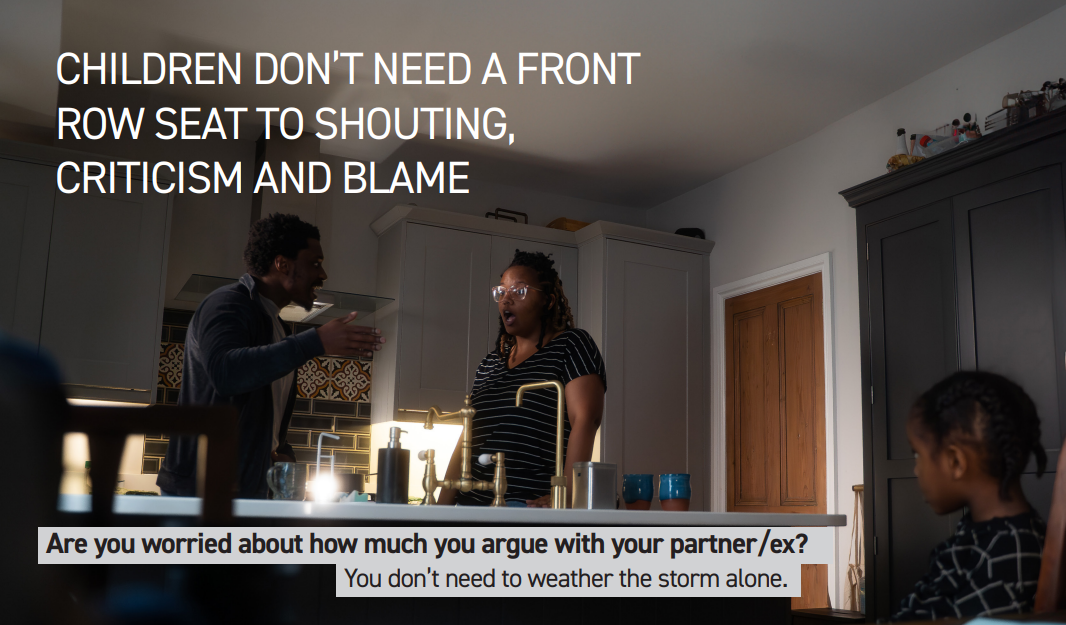Disagreements are a normal part of any relationship, whether you're together or separated. However, it's important to pay attention to why and how often these conflicts happen, how we argue, and how we resolve or handle them.
What can cause parental conflict?
- parenting styles
- household chores or responsibilities
- financial pressures
- moving to a new house
- having a baby
- health conditions
- substance or alcohol misuse
- lifestyle
- extended family
- hobbies and work commitments
Conflict is a normal part of family life, but it can harm parents and children if not handled well.
Children exposed to frequent and intense parental conflict may face several risks:
- social problems: they might have trouble with friends and teachers, which can affect their school performance
- substance abuse: they are more likely to start using drugs or alcohol earlier
- relationship issues: they may struggle with relationships as adults
- job challenges: they could have difficulty finding and keeping jobs, leading to financial problems
- mental health: they have a higher risk of mental health issues, both as children and later in life
- developmental issues: conflict can affect their brain development and emotional growth, leading to behavioural problems and risk-taking
- health problems: they might experience health issues like sleep troubles, stomach aches, fatigue, headaches, and slower physical growth
Practitioners toolkit
The toolkit below has been designed specifically for practitioners to support everyday practice, giving advice, tips and information to families, parents and carers who may be together, separating, divorced or co-parenting. This will support practitioners to complete direct interventions with parents, including assessment tools, questionnaires and templates for discussion.
In this toolkit, we use the word ‘practitioner’ but this applies to anyone working with families, eg. school staff & health visiting teams. Supporting healthy relationships is everyone’s business. All practitioners working across Worcestershire can provide support.
What does it hope to achieve?
- aims to help practitioners engage families and address conflicts constructively
- support parents to establish safe spaces to share their wishes and feelings to ultimately have improved communication
- parents are accessing targeted support sessions aimed at reducing conflict and improving the lived experience and safety for all in the family home
- support to address and reduce parental conflict that sits below a domestic abuse or violence threshold
Download the toolkit: Reducing Parental Conflict Practitioner Toolkit (PDF)
Tips to resolve and manage conflict:
- pay attention to your feelings and behaviour
- focus on solving the problem, not just trying to win
- make sure you understand exactly what the disagreement is about
- find a common goal, be willing to adjust, and make compromises that benefit both parents and the child or children
- listen to each other’s perspective



 Facebook
Facebook X
X Email
Email WhatsApp
WhatsApp Messenger
Messenger